How to be van-tastic from the start
Ready to dive into van life? This beginner’s guide shares 8 essential tips to help you transition smoothly, from downsizing and organizing to finding the right gear. Whether you're dreaming of freedom on the road or already planning your move, discover practical advice to make your van life journey a reality.
Deciding to go full-on, all-in, big-time, 100% van life is a huge decision. One of the biggest you will ever make. It's a complete lifestyle change and the transition is exciting, but it's challenging.
So what's the secret to a successful transition?
Preparation. Preparation. Preparation.
I admit, I'm a bit of an organisation freak. A project management career will do that to you. During that transition phase, I lived, breathed, and slept #vanlife. There was SO MUCH TO DO. It was overwhelming at times.
The best approach for this phase is to break it down. Segment it into chunks and prepare for each one. What spits out at the end will hopefully be you cruising down the road in the sunshine ready for your van life and travel adventures… 😉
So how do you do that? Read on for more...
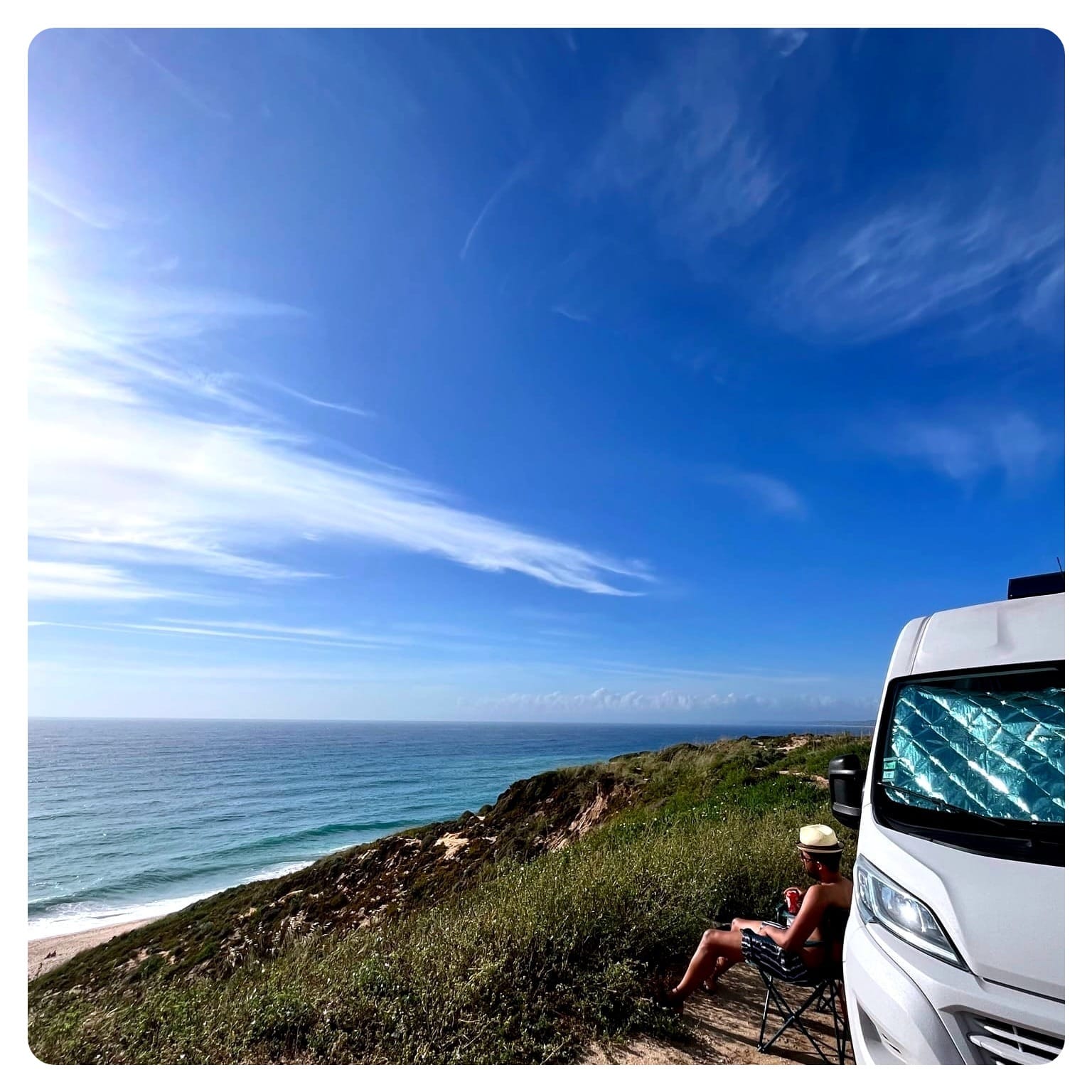
To help you get started, I've compiled the essential tips to prepare you for the most amazing, and challenging, journey of your life.
This was my cheat sheet, and it didn't fail me.
From organising your space to staying connected, these suggestions will ensure that you start your van life adventure in a prepared and organised state. So let's start!

Preparing for Van Life Transition
Choosing the right van for your needs, budgeting for van life and downsizing you belongings
1) Choosing the Right Van for Your Needs
Your van is going to be your home, so choosing the right one is paramount.
While there are many options ranging from ready-made motorhomes, converted panel vans and vintage camper vans, it's important to keep your lifestyle and comfort in mind. Here are a few pointers to consider:
- Size really does matter: Think about the size of the van that will best suit your needs. If you want more living space, a longer van might be ideal. However, a smaller van can be more fuel-efficient and easier to park.
- Condition and reliability: Whether you're buying new or used, ensure that the van is in good condition. Check for any necessary repairs, the mileage and ensure it's reliable for long-distance travel.
- Conversion: If you plan to convert a panel van into a camper, assess the ease of transformation. Some vans are easier to modify than others due to their shape or interior features. Assess a DIY conversion against finding a company to carry out the work for you.
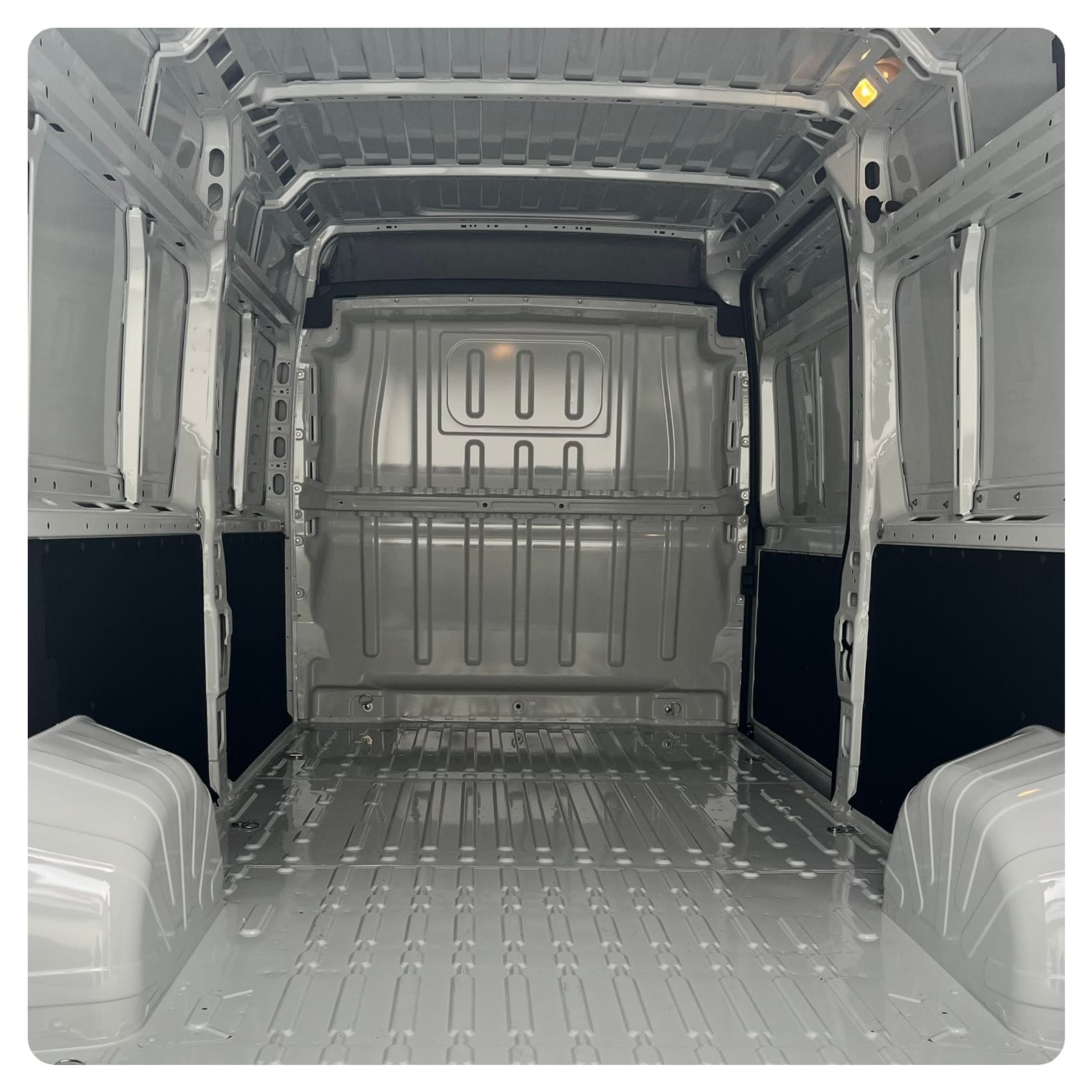
Remember that this, plus the van layout, are the most important decisions you will make during the van life transition.
It's important that you research, research and research some more. Take your time, test out other rental campers if you can and consult with van life conversion companies.
2) Budgeting for Van Life
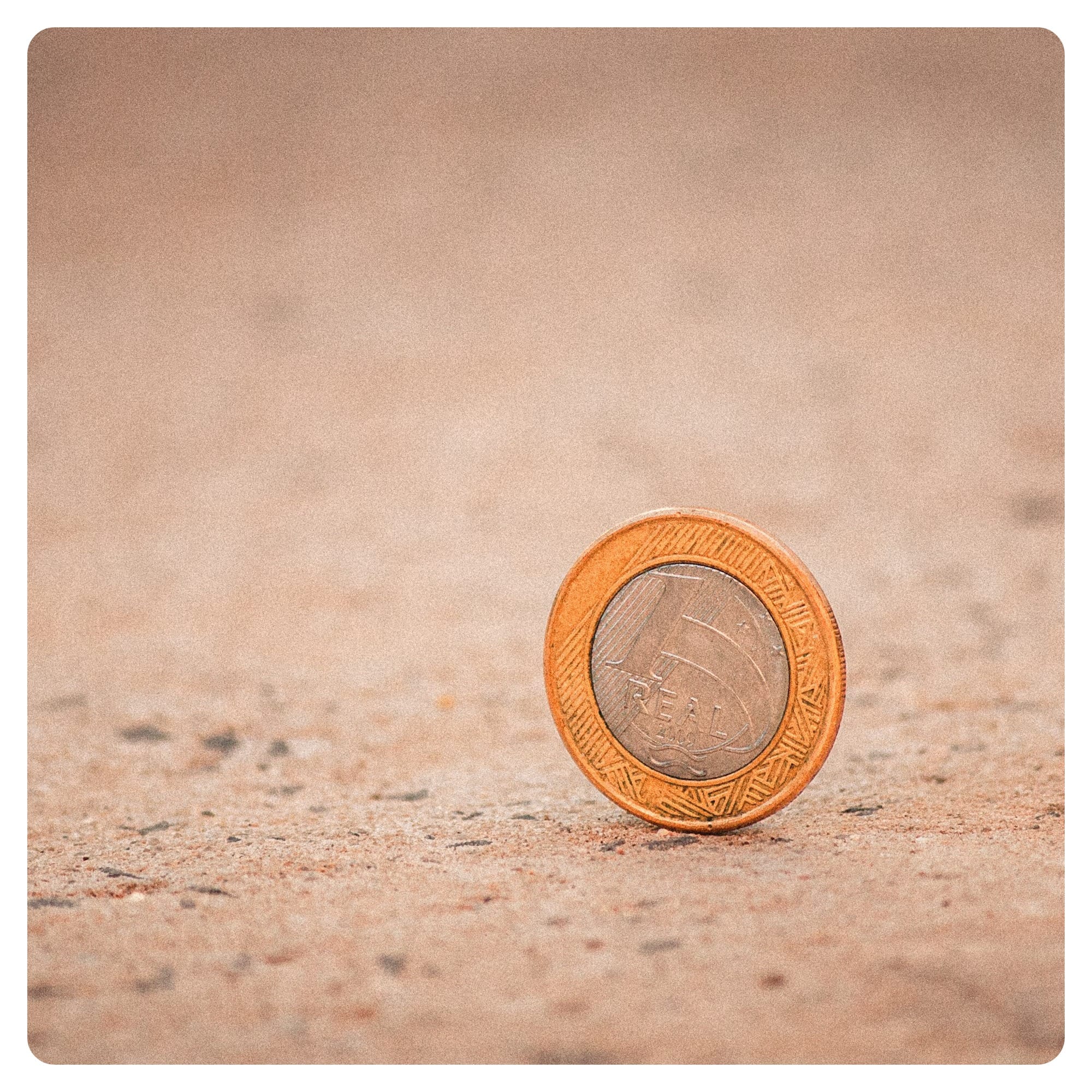
Budgeting is an essential part of planning for van life. But it's easy to get swept up in the dream without acknowledging and being realistic about the costs. Here's what you'll need to budget for:
- Initial costs: Understand the upfront costs, including the purchase of your van and any necessary modifications or the conversion.
- Monthly expenses: Account for known recurring costs like fuel, insurance, food, resources and maintenance. Also budget for having fun on your travels, such as experiences, dining out and entrances to museums or attractions.
- Contingency fund: Absolutely budget for unexpected emergencies and mechanical repairs.
Keeping a detailed budget, and sticking to it as best as possible, will help you to enjoy the van life adventure freely without financial stress.
3) Downsizing Your Belongings
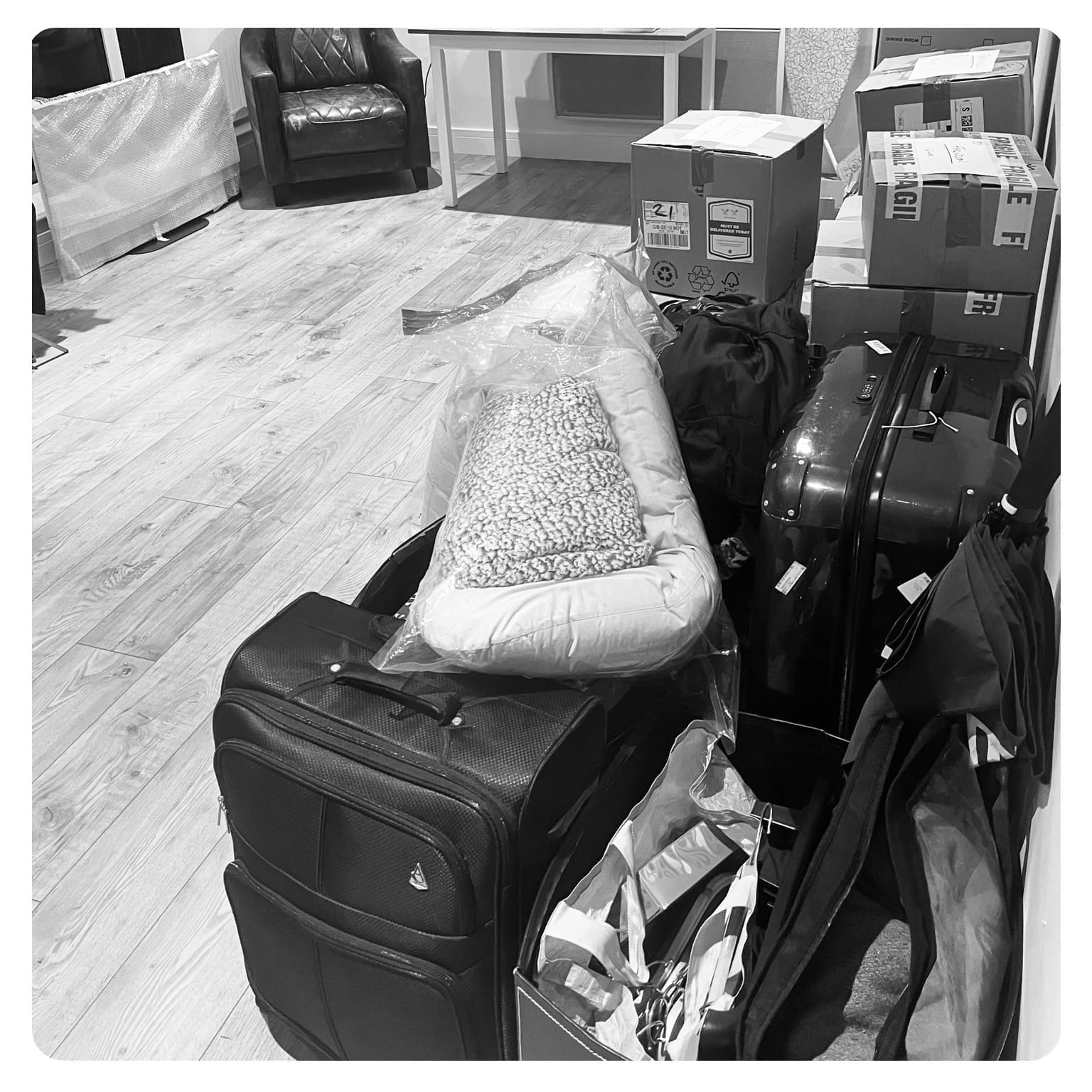
Moving into a van means embracing minimalism. Since space is limited, you'll need to whittle down your belongings to only the essentials. Here’s how you can start:
- Prioritise the essentials: Identify the things you truly need for your van life. Clothing, cooking equipment, van equipment and supplies of course are essential, but do you need that third pair of shoes and the pasta maker?
- Declutter: Decide what to keep, donate, or sell. If an item doesn't serve a clear purpose or bring you joy, consider letting it go.
- Weight: Bear in mind weight allowance. A UK and European standard driving licence is for Category B, which covers a vehicle up to 3.5 tonnes. Note that the weight needs to include yourself and passengers. This is also an incentive to downsize and avoid packing large heavy items.

Setting up your van living space
Creating a functional layout, ensuring you're equipped with the right tools and supplies and how to make the van your home
4) Creating a Functional Layout
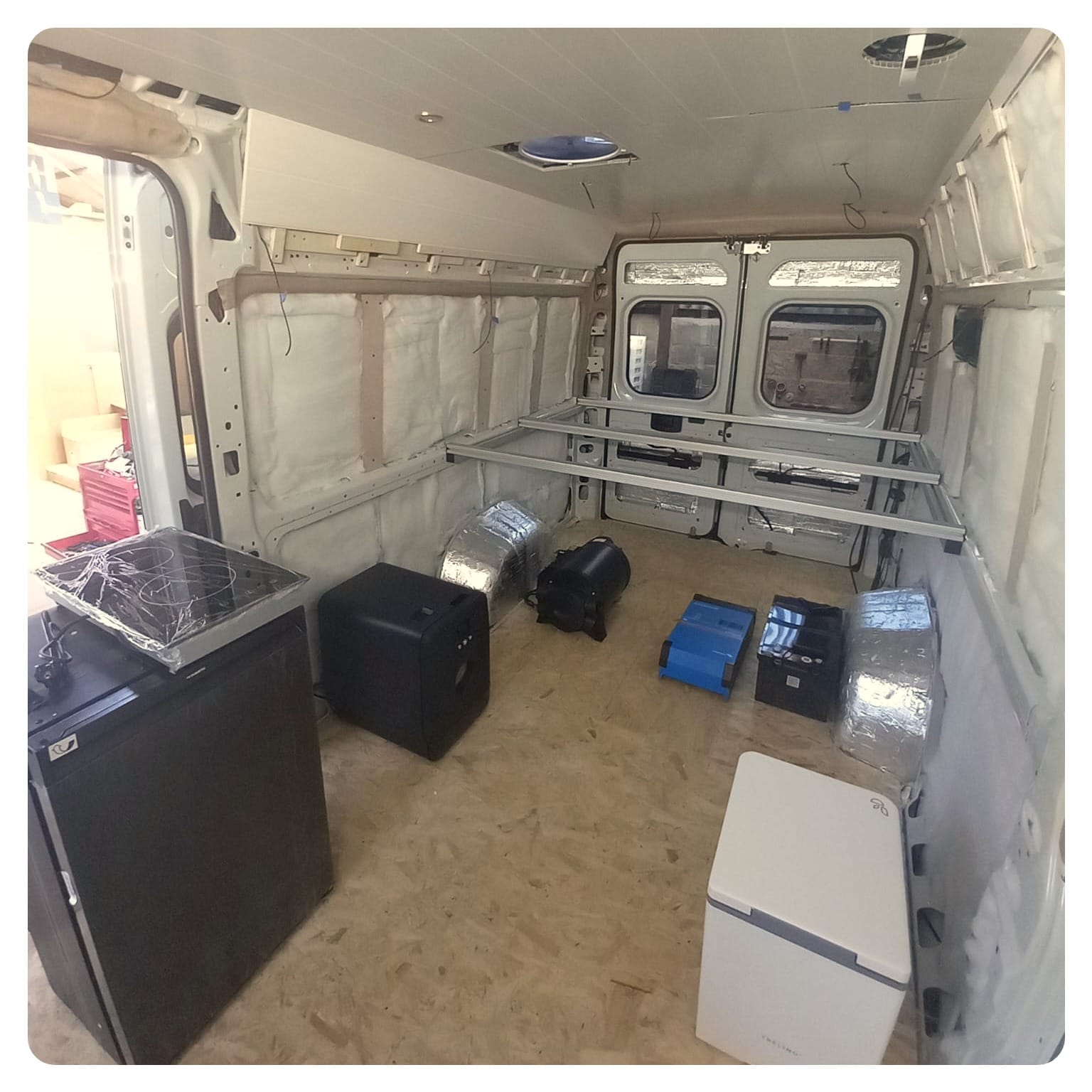
The thought of living in such a tiny space can be daunting, particularly when you're sharing that space with other living creatures. To prevent insanity, a functional layout is essential.
The van needs to work with you to enable you to live as comfortably as possible without tripping over yourself every five minutes.
- Multi-purpose areas: Designate spaces that can serve multiple purposes, such as a bed that converts into a seating area, swivel passenger or driver seats and pop-up tables that can serve for working and dining.
- Vertical space: The walls are your friend! Make full use of this space by installing shelves and hooks for additional storage.
- Comfort is key: Ensure you have a comfortable sleeping area as this will greatly impact your quality of life. Van life can be exhausting (because of both good and challenging reasons). You need to sleep well!
Let’s not forget to make it feel homely! I’ve created a post here, with photo suggestions, on how to make your van beautiful!
5) Essential Tools and Supplies

Having the right tools and supplies can make van life more comfortable and efficient. Here's a checklist of essentials:
- Cooking: A stove, pots, pans, and utensils for preparing meals. Try to have multi-purpose items, for example, I just have one large Tefal pan that I use for all stove cooking. Also, think about size and weight - look for travel-sized or camping-specific appliances, like lightweight enamelware dinner sets and mini kettles.
- Safety: You know the drill! First-aid kit, torch, emergency camping light, fire extinguishers (I’d recommend one for the living space and one in the garage).
- Maintenance: Basic maintenance tools and repair kits suitable for your van. You can go a long way with a mini tool kit. Mine has never failed me!
These items ensure that you’re prepared for everyday living and any challenges that may arise while on the road.
6) Organising for Comfort and Efficiency
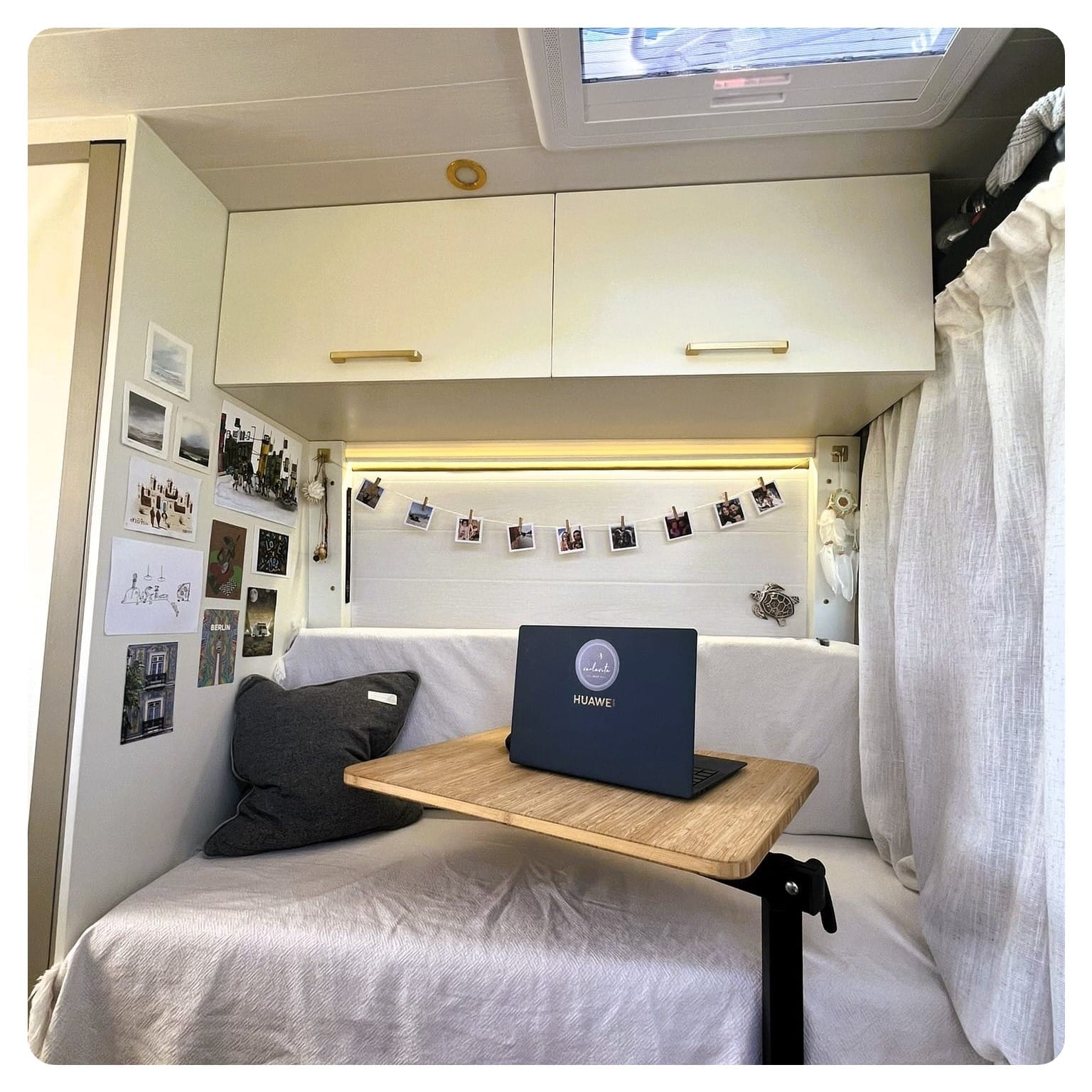
With limited space, organisation is essential. Here's how you can prepare for your can to be tidy and efficient:
- Storage solutions: The solutions depend on the space and layout you have. If you have a 'garage' at the back of the van, invest in good quality stackable boxes and assign each one of these a purpose. Small boxes and compression bags are good for storing smaller items and clothing.
- Label everything: Label storage containers to quickly find what you need without rummaging through everything.
- Regular cleanup: Be prepared for daily tidying to maintain a comfortable living space. Things can go from tidy to chaotic in seconds in such a small space.
A well-organized van not only makes life easier but also makes for a more peaceful and enjoyable living environment.
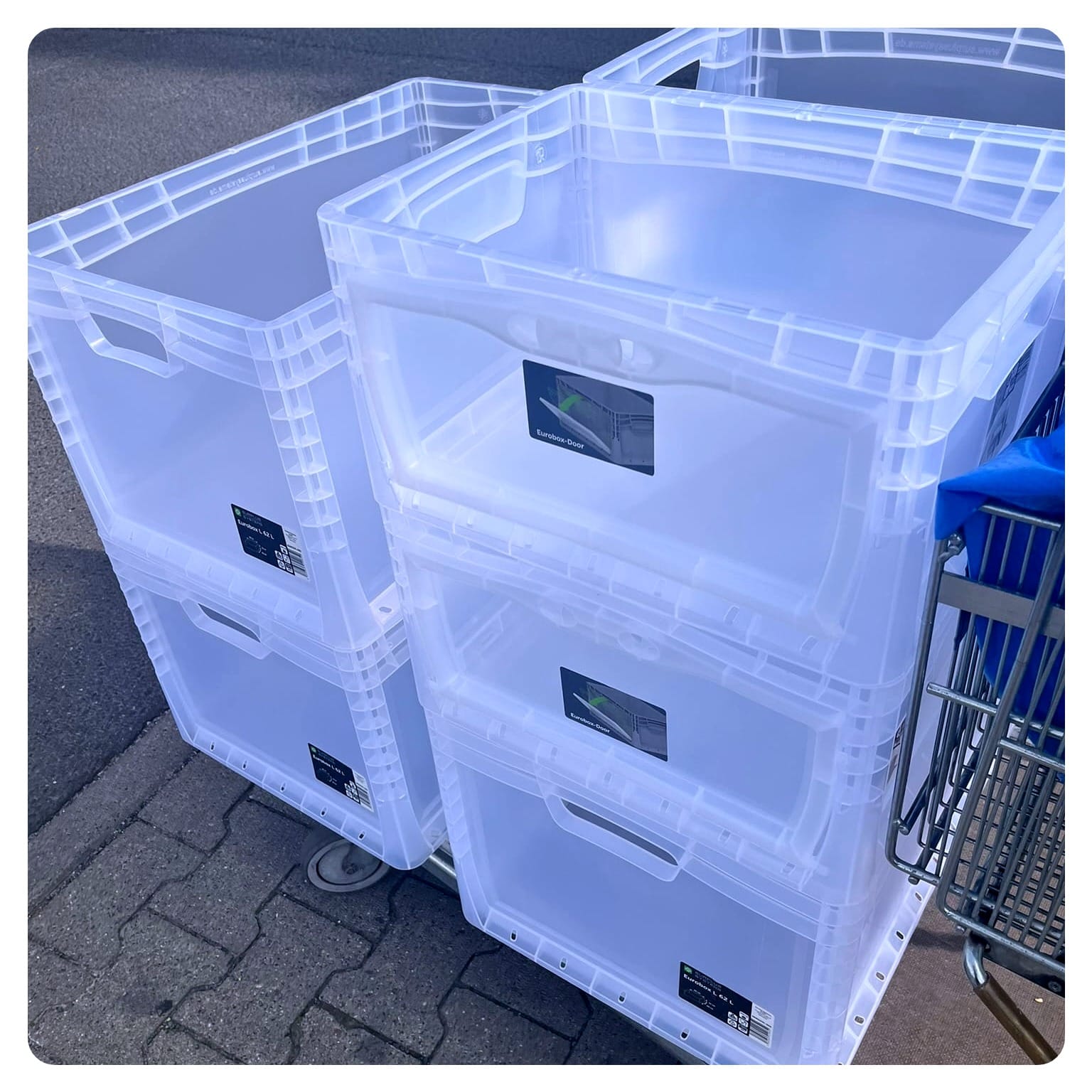

Staying connected and safe
Mobile connectivity and protecting your van and belongings
7) Accessing Mobile Connectivity
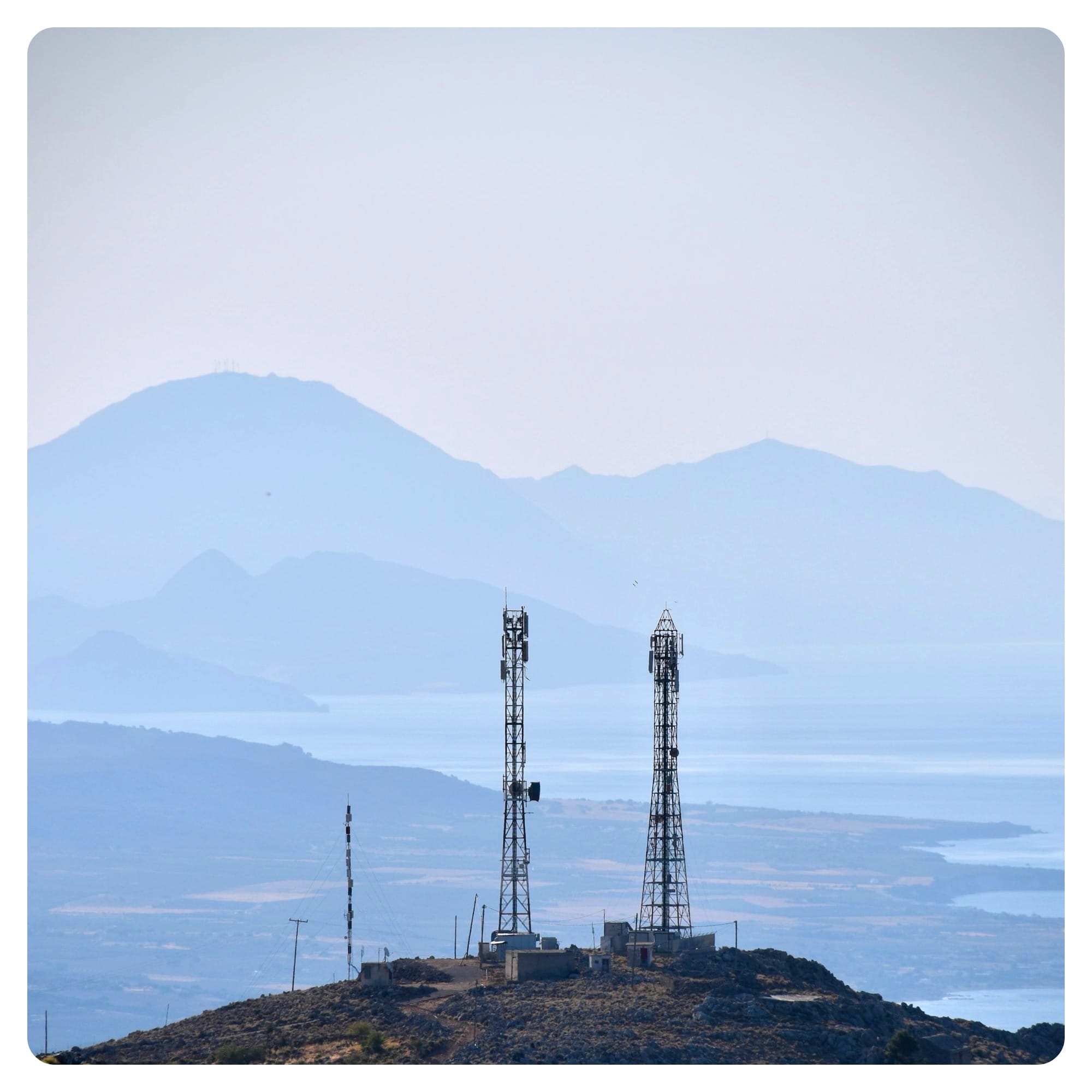
Staying connected in van life is essential for communication, navigation, and if you're working remotely. Public wifi on campsites and hotspots can be unreliable so you must be self-sufficient when it comes to connection.
- Mobile data: Opt for a mobile plan with ample data or a reliable hotspot device. It is easier if your mobile device is e-sim compatible so you select local providers with the best coverage. For e-sims I always use MobiMatter as they offer the best eSIM deals no matter where you are in the world.
- Router and signal booster: If you like to go off-grid, consider investing in a wifi router and external antenna. This can aid in maintaining a connection when service is spotty.
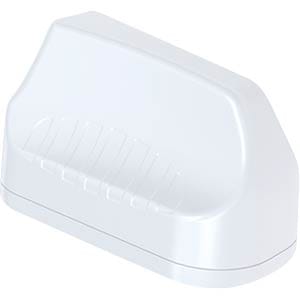
- Offline Tools: Download maps and important documents offline, ensuring access even without service. Apps such as MapsMe, enable to you download an area or country for offline navigation. I used this when road-tripping Morocco, it was a saviour in the Atlas Mountains where there was no connectivity.
8) Staying Safe and Secure
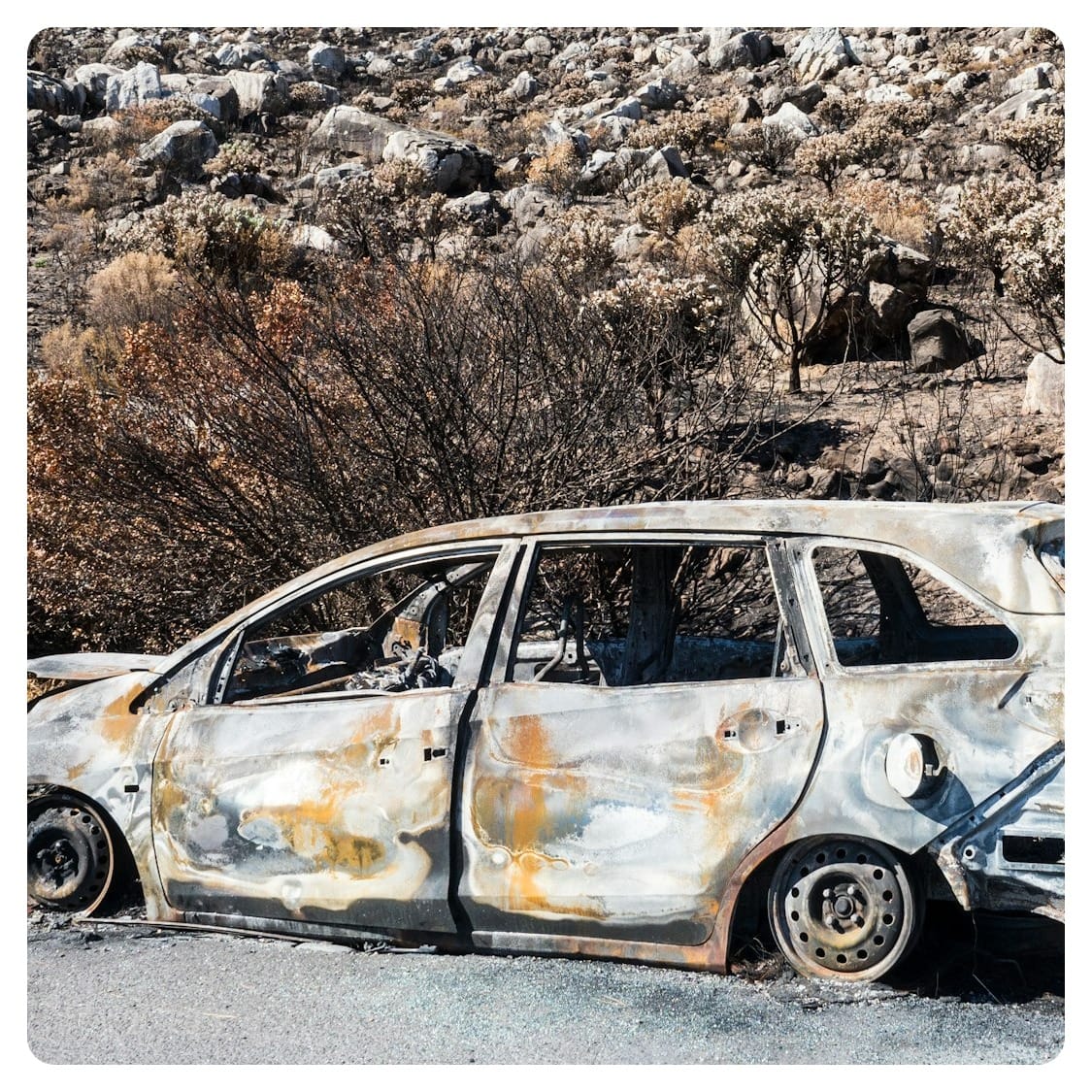
Although it's last on this list, safety shouldn't be an afterthought. Remember that your van is now your home, your life, your world. You went through a lot to get here and your tiny home on wheels is more vulnerable than bricks and mortar.
As well as ensuring adequate insurance, your van needs to be secure against theft.
- Alarm system: Consider an alarm and immobiliser system specifically configured for campervans.
- Extra locks: Installing deadlocks (both interior and exterior) and steering wheel locks to add another layer of security.
- Secure Your Belongings: Invest in a safe or lockable storage unit for valuables such as passports, money and jewellery.
To wrap things up...
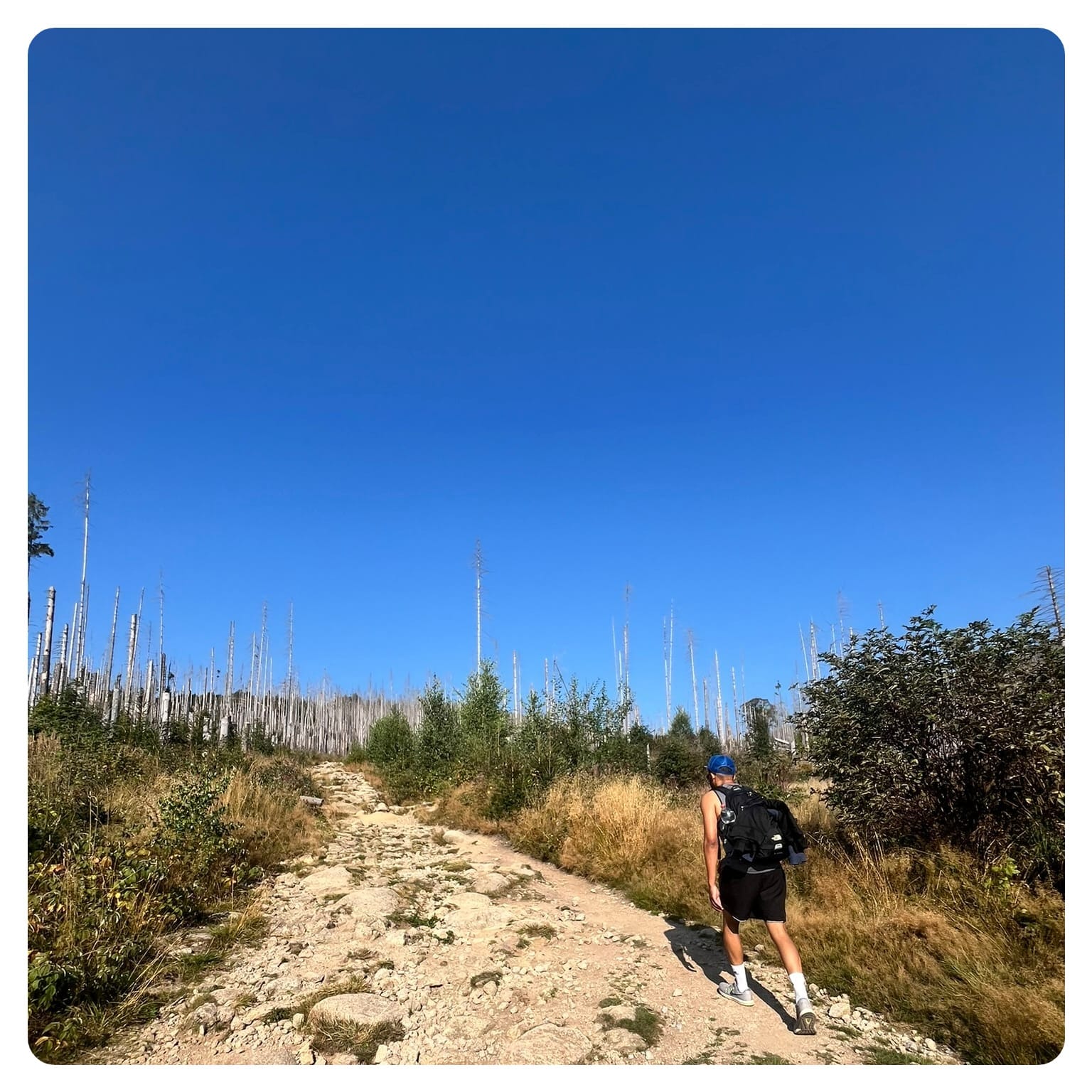
It's natural for the transitional phase to feel as equally daunting and overwhelming as it is exciting. To me, it felt like a huge mountain to climb!
Embrace this as part of the journey. The knowledge and experience that you'll gain during that process are, invaluable and the rewards that are waiting for you, once you start van life, will outweigh this challenging time.
The most important thing is to be prepared! Hopefully, my cheat sheet will assist you in your preparations.
Thanks for reading! Leave a comment below with any feedback, questions or your own recommendations, I'd love to hear from you 😄


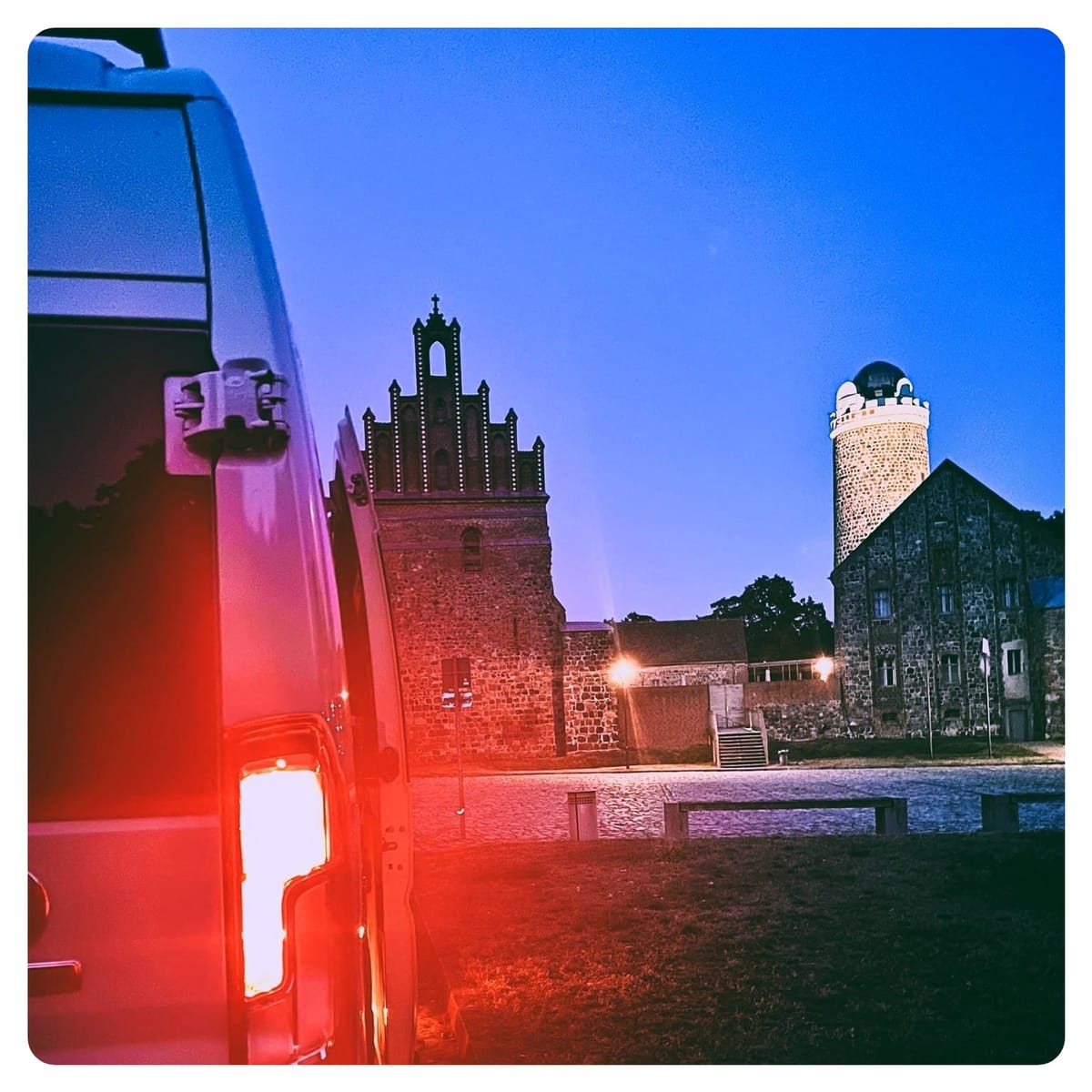


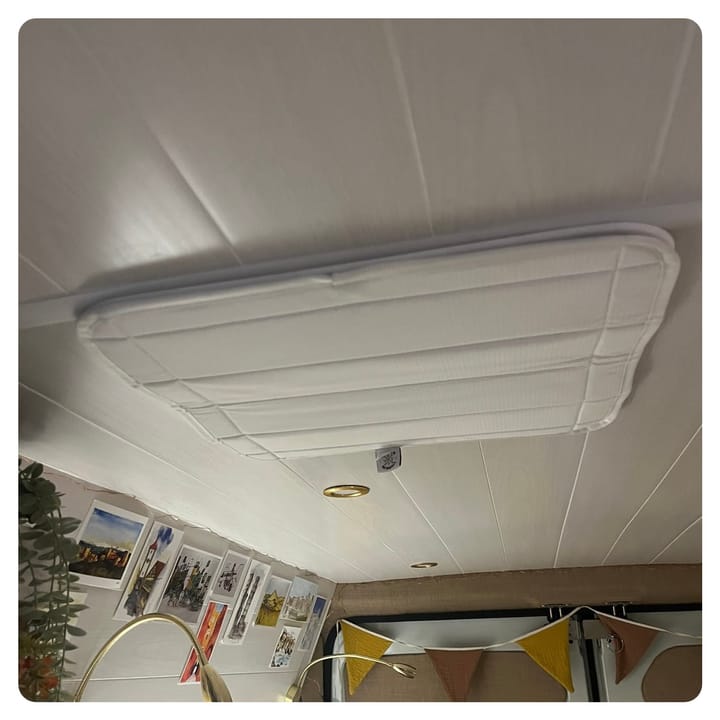
Comments ()